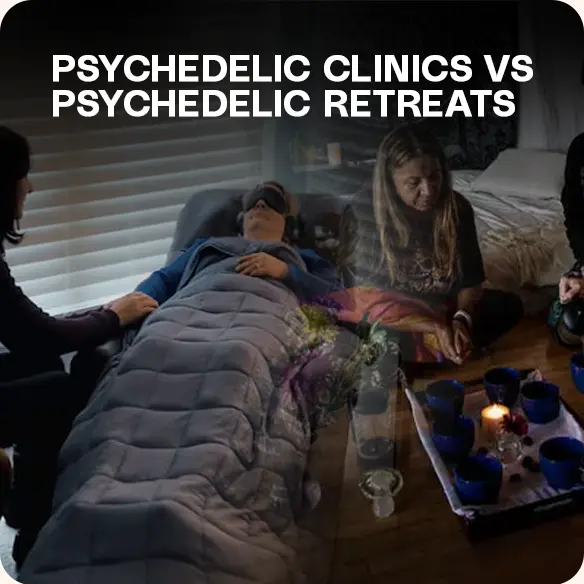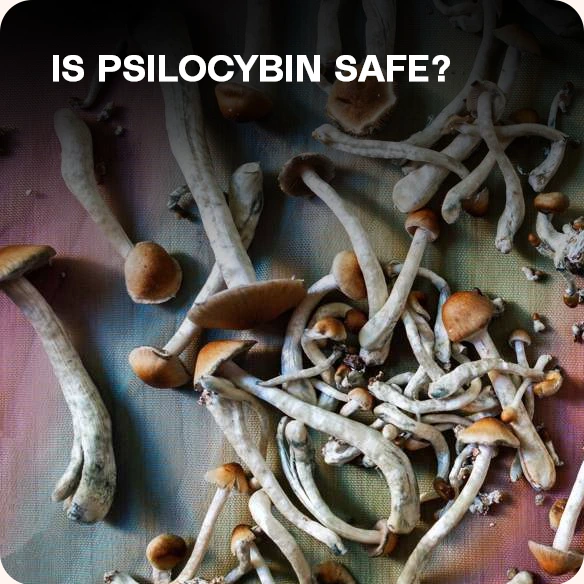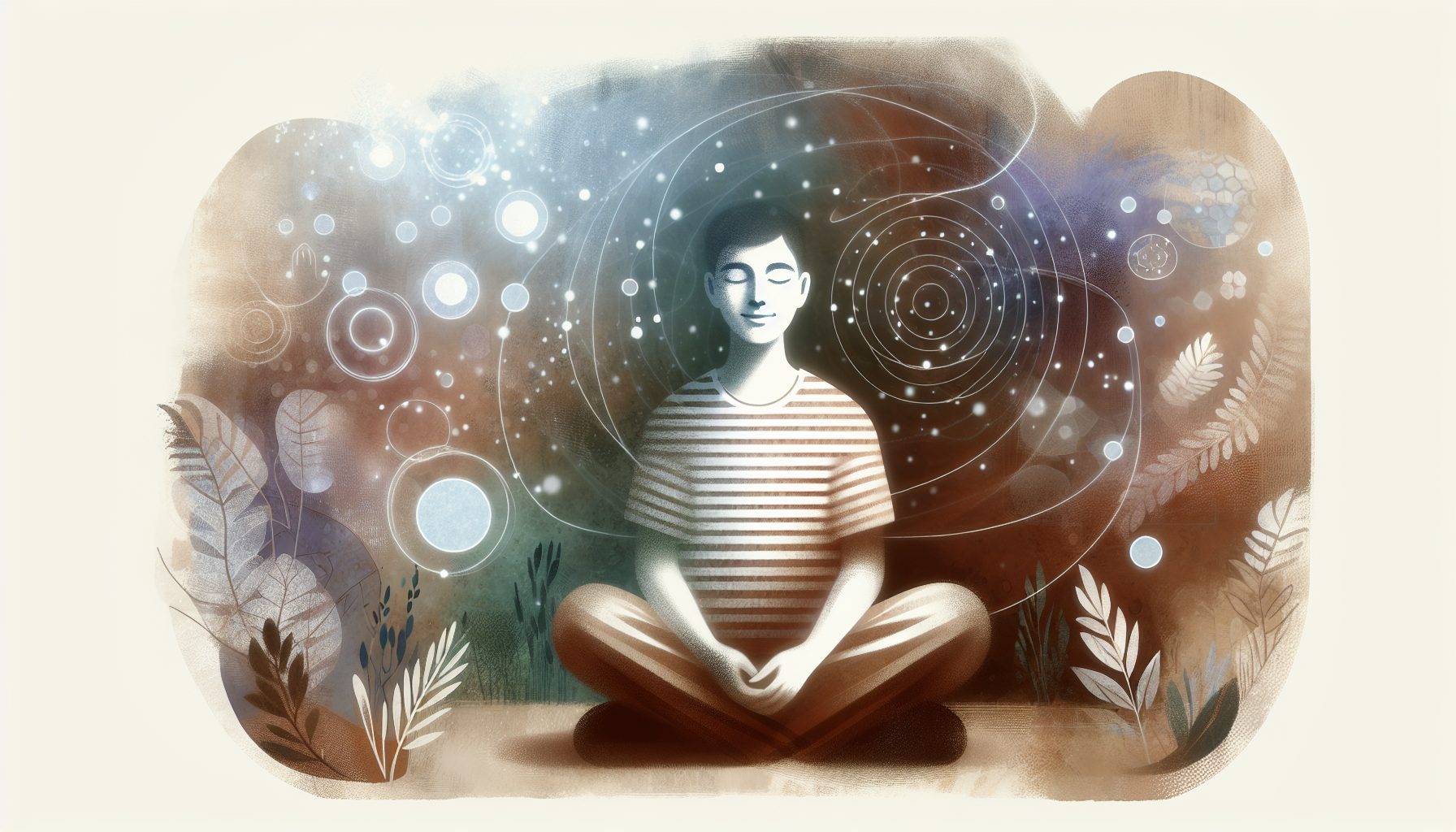
Key Takeaways
- Microdosing psilocybin means taking just enough mushrooms to boost brainpower without experiencing a full psychedelic trip.
- Both scientific research and real-life experiences suggest that microdosing psilocybin can help calm anxiety, brighten moods, and improve stress management. It also seems to spark creativity and sharpen thinking skills.
- While the benefits are promising, the microdosing research is still evolving. Accurate dosing and the placebo effect present challenges, yet ongoing studies continue to uncover how these small amounts can have significant mental health benefits.
What is microdosing psilocybin?
Microdosing involves taking small amounts of psilocybin to enhance mental clarity and emotional well-being.
This method lets people experience the benefits of psilocybin—like better focus and mood improvement—without the intense hallucinations and sensory shifts that come with larger amounts of psilocybin.
Common Substances Used for Microdosing
Magic mushrooms are the most popular choice for microdosing. They contain psilocybin, which is known to improve mental clarity and well-being in small amounts.
Some people mix psilocybin with Lion’s Mane mushrooms and other substances, like Niacin, to adjust their microdosing experience. This method, called ‘stacking,’ boosts the benefits of microdosing.
Anxiety Reduction
Many people find that microdosing psilocybin helps manage their anxiety. Studies have shown that small, consistent quantities can ease anxiety, enhance mood, and reduce stress-related symptoms.
Adding activities like yoga into the mix can boost these benefits even further. When paired with microdosing, yoga helps deepen the sense of calm and mental clarity, supporting your journey to a better mental focus. Whether you’re trying to ease everyday stress or achieve a more lasting peace of mind, microdosing psilocybin might be worth considering.
Depression Relief
Microdosing psilocybin is gaining attention for its potential to reduce not just anxiety but also depression. Studies from UCSF and Imperial College London reveal that psilocybin can increase brain connectivity, which helps break the cycle of negative thoughts often seen in depression.
A present study made by Neuroscience News found that people who microdose psilocybin report improved mental health and mood over about 30 days compared to those who don’t microdose.
These studies are important as they suggest that microdosing could be part of treatment plans for tough mental health issues like depression and its overlap with substance use disorders.
Stress Management
Dealing with stress is a big challenge today, and research suggests that microdosing psilocybin could help manage it.
A study from Health Europa monitored 953 people who microdosed psilocybin, showing that they experienced reduced stress and improved mood compared to those who did not microdose.
Another study published in Molecular Psychiatry demonstrated that repeated low amounts of psilocybin in rats increased their resilience to stress and reduced compulsive behaviors, suggesting similar potential benefits for humans. The study shows that microdosing psilocybin could promote changes in brain connectivity that help manage stress without reducing daily function.
Furthermore, future studies will continue to examine how these benefits may be used to reduce stress and improve performance in high-stress situations, such as workplaces or during academic tests.
Cognitive Function and Creative Enhancement
Microdosing is not just about feeling better; many people find it sharpens their thinking and creativity. They notice improved focus, stronger problem-solving abilities, and increased creativity, suggesting microdosing could improve cognitive function and creative thinking.
Improved Focus
Staying focused in a distracting environment is tough. Microdosers often find they can concentrate better and stay on task longer.
Previous research, like the one from Health Europa, shows that older adults see improvements in tests that measure brain functioning. The participants said that multitasking no longer overwhelmed them, suggesting that microdosing could help with a more focused and effective cognitive function.
Increased Creativity
Creativity is key in all aspects of life, and microdosing has been linked to higher creativity. People who microdose often report seeing things from new angles, being more curious, and feeling more open to new experiences. This boost in creativity is one of the main reasons people choose to microdose.
A study discussed by Prochazkova et al. (2018) covered in Psychology Today explored how microdosing psilocybin could enhance creativity. Researchers found that participants who microdosed reported improvements in both convergent and divergent thinking, which are critical for creative problem-solving and generating new ideas. This supports the idea that microdosing can open the mind to new ways of thinking, potentially leading to more innovative thoughts and solutions.
These benefits have also been noticed by artists, including writers, musicians, and painters, who believe that microdosing can improve creativity and imagination.
Benefits for Physical Health
Microdosing psilocybin is not just talked about for improving mental health; it might also help with physical pain.
Research such as the one conducted by Schindler et al. and published in Psychopharmacology (2015) surveyed 496 people suffering from headaches and found that psilocybin may reduce these symptoms, indicating a reduction in the frequency and intensity of headaches.
Mental Health Improvements
Microdosing could be a big help for other mental health issues too, not just anxiety and depression. Research from Johns Hopkins University (2021) has found that psilocybin therapy significantly reduced depression and anxiety in adults with major depression for up to a year following treatment.
For people dealing with severe stress or PTSD, ongoing studies, such as those conducted by NYU and published in the Journal of Psychopharmacology (2020), show that psilocybin can promote emotional stability and reduce symptom severity in PTSD patients.
Benefits Beyond Mental Health
Microdosing might do more than make you feel better; it could also help people change their habits. For example, a study from the University of California, San Francisco in 2019 looked into how psilocybin, the active component in magic mushrooms, could help people stop smoking.
How the Study Worked
- Setup: Participants went through several therapy sessions where they received controlled amounts of psilocybin.
- Process: These sessions were combined with methods that help change behavior, specifically aimed at quitting smoking.
- Results: Many people in the study managed to quit smoking and stayed off cigarettes for a long time after the treatment ended.
Psilocybin affects the brain by connecting with certain brain cell receptors. This can change the way the brain is organized and how it sends messages, which might help break the tough patterns of thinking and behavior tied to addiction.
Adding Microdosing to Daily Health Routines
Microdosing might become part of everyday health routines if research continues to show positive results. Survey data from the Global Drug Survey (2020) support this, indicating an increase in self-reported well-being and mental health stability among microdosers.
The goal is to figure out how it can be safely used together with other healthy habits like eating well, exercising, and getting enough sleep, as suggested by ongoing clinical trials assessing the holistic impact of psilocybin alongside lifestyle changes.
Understanding Risks and Safety in Microdosing
Microdosing has a low risk of side effects, but safety must be considered. Getting the right amount is key because small mistakes can make you more anxious or shift your mood. If you’re new to microdosing, start with tiny amounts and see how you feel before taking more.
Accurate Dosing
Getting the dose right in microdosing is crucial because small mistakes can lead to unexpected problems, like increased anxiety. This is why it’s so important to measure doses carefully to avoid messing up the results of studies or causing unwanted effects.
Possible Side Effects
Although the doses are small, microdosing can still cause side effects such as feeling uncomfortable, restless, or a bit anxious. While these side effects are mild, they remind us of the importance of being cautious and well-informed when microdosing.
By being careful and informed, you can explore the benefits of microdosing while keeping risks low.
Summary
In conclusion, microdosing offers great potential for improving mental health, thinking sharper, and being more creative. As we learn more about psilocybin mushrooms, microdosing could become a key part of health and wellness.
Frequently Asked Questions
Can microdosing help with anxiety or depression?
Yes, microdosing helps reduce anxiety disorders and depressive symptoms, providing a subtle but noticeable improvement in mental health.
Can microdosing be a part of a healthy lifestyle?
Yes, when done responsibly and combined with other health-supporting practices like good nutrition, exercise, and sufficient sleep, microdosing can be a valuable addition to a healthy lifestyle.
Can I microdose daily?
No, most protocols recommend microdosing every three days to prevent tolerance build-up.
Can I stop microdosing anytime?
You can stop microdosing anytime, as the doses are small and non-addictive. However, it’s always good to be mindful of how you feel when you stop.
Does microdosing affect sleep?
No, microdosing does not disrupt sleep. In fact, some users report better sleep due to reduced anxiety.
Sources
Anderson, T., Petranker, R., Dinh-Williams, L. A., et al. (2019). Microdosing psychedelics: Personality, mental health, and creativity differences in microdosers. Psychopharmacology
Carhart-Harris, R. L., Bolstridge, M., Rucker, J., et al. (2016). Psilocybin with psychological support for treatment-resistant depression: Six-month follow-up. The Lancet Psychiatry
Prochazkova, L., Lippelt, D. P., Colzato, L. S., Kuchar, M., & Hommel, B. (2018). Exploring the effect of microdosing psychedelics on creativity in an open-label natural setting. Psychopharmacology
Polito, V., & Stevenson, R. J. (2019). A systematic study of microdosing psychedelics. PLOS ONE
Schindler, E. A., Sewell, R. A., Gottschalk, C. H., et al. (2015). Exploratory controlled study of the migraine-suppressing effects of psilocybin. Neurotherapeutics
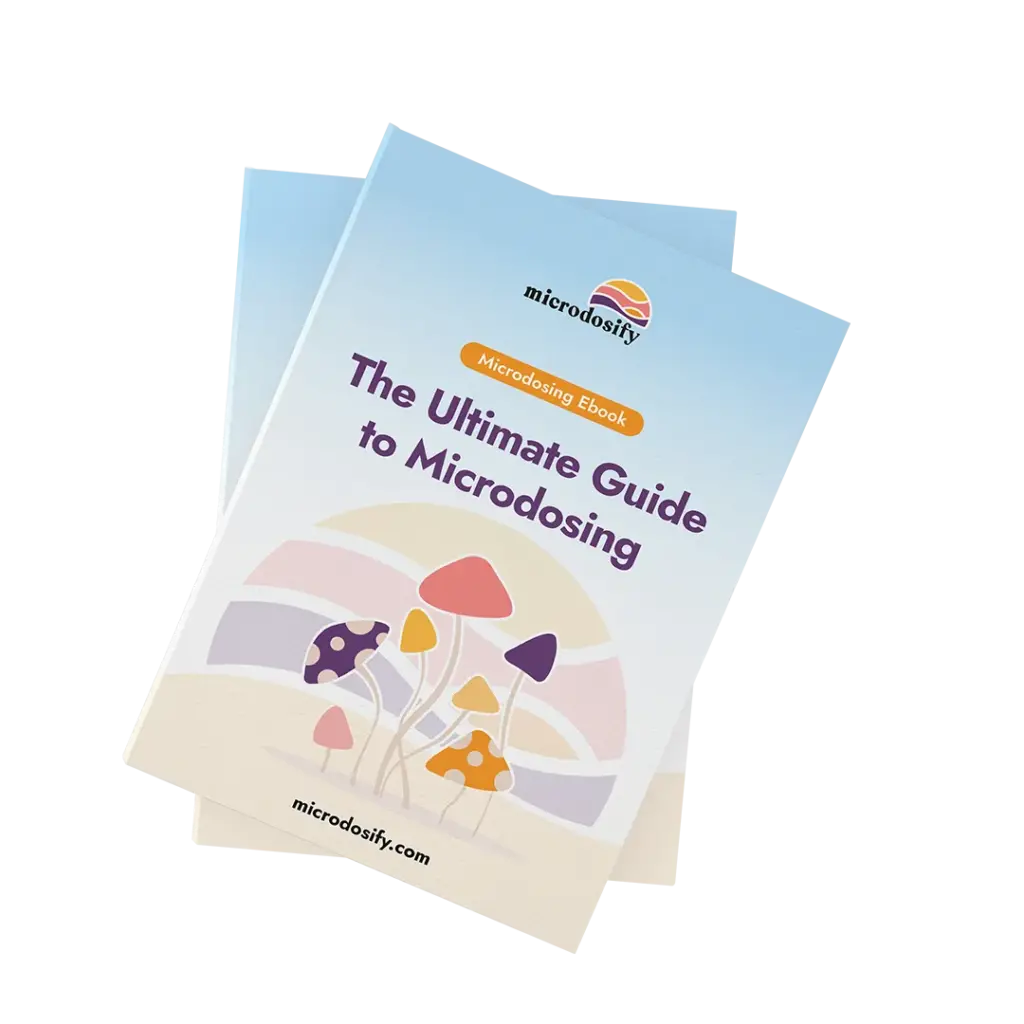

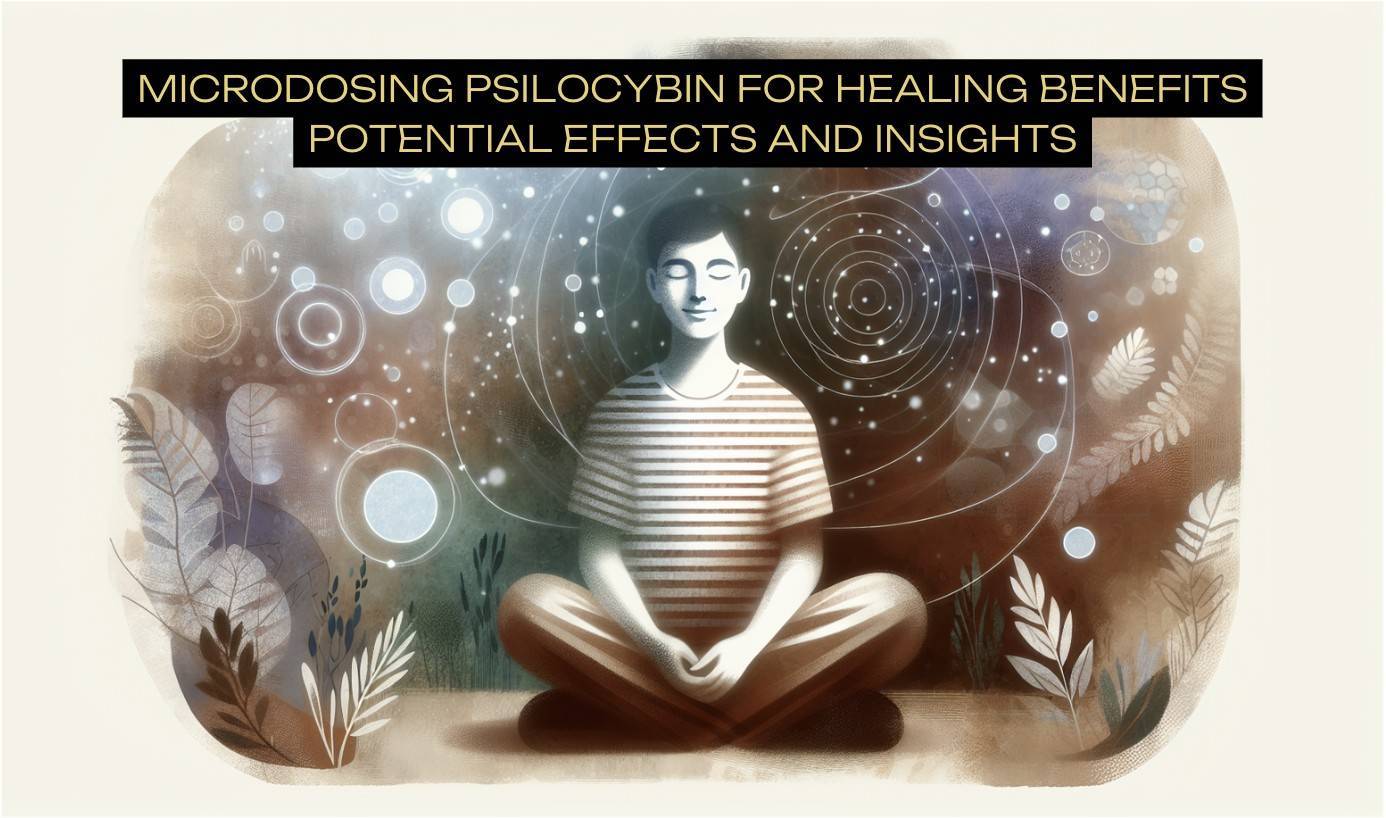
 8 min read
8 min read